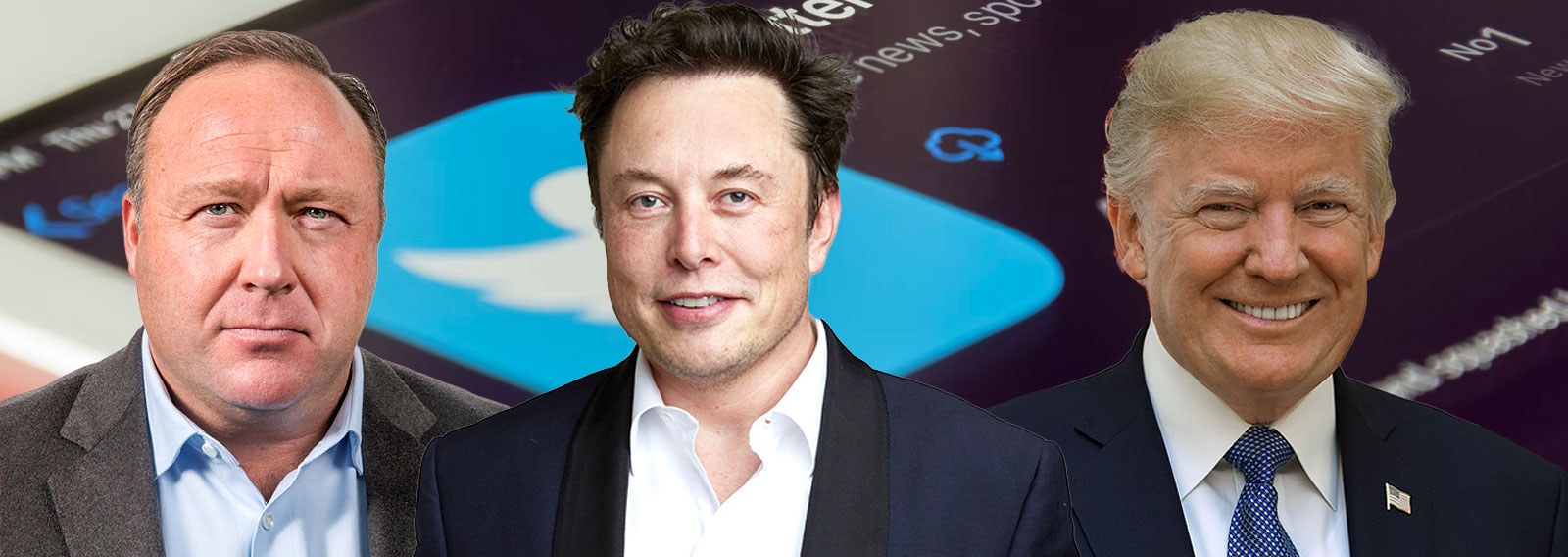Twitter’s new ‘Chief Twit’ has restored several ‘controversial’ accounts to the social media platform, including that of President Donald Trump.
Since the $44-billion purchase of the company, Elon Musk has reinstated the accounts of Jordan Peterson, the Babylon Bee, and Kanye West, among other influential figures considered problematic by former management, as part of Musk’s efforts to “free the bird” and promote “free speech” on the platform.
President Trump’s account was restored on Sunday after Musk ran a Twitter poll asking users if the former President should be reinstated.
The poll attracted more than 15 million votes, around 1 million votes per hour, with 51.8% voting in favour of restoring President Trump to the platform.
The results may have been skewered, however, after Musk identified an ‘impressive to watch’ attack which helped to expose bot and troll accounts influencing poll results.
In a follow-up Tweet, Musk said: “Bots & troll armies might be running out of steam soon. Some interesting lessons to clean up future polls.”
Although Trump has not yet returned to the platform, his account has managed to attract almost 90 million followers in less than 24 hours.
But not every high-profile suspended figure will be restored to the platform, according to Musk.
When asked by a user if the platform would reinstate Alex Jones’ Twitter account, Musk simply replied: “No.”
Musk was further pressed on the matter by one user who described Jones as the “litmus test,” not just when it comes to “freedom of speech,” but on “not bending the knee to political and judicial intimidation.”
“If this is a hard ‘no,’ your Twitter will never be any more trustworthy than [Parag Agrawal] or [Jack Dorsey’s] Twitter,” the user said.
“Too bad,” replied Musk.
Responding to the decision, Jones urged his followers to support Musk’s efforts to free up Twitter:
“Don’t blame Musk, at the end of the day, because he didn’t bring me back,” Jones said. “I’m the most controversial figure in the world because I’m the most threatening to the New World Order. So, don’t expect him to bring me back day one, when he has to first get control of the platform before he can even think about that.”
Just last week, Musk announced the platform’s ‘new’ policy on free speech, which raised more than a few eyebrows.
“New Twitter policy is freedom of speech, but not freedom of reach,” Musk tweeted, echoing an approach previously endorsed by ADL (Anti-Defamation League) CEO Jonathan Greenblatt.
Musk said the new policy means, “Negative/hate tweets will be max deboosted & demonetized, so no ads or other revenue to Twitter.”
In other words, “You won’t find the tweet unless you specifically seek it out, which is no different from the rest of the Internet.”
Of course, that raises the obvious question as to who gets to determine what constitutes ‘hate speech.’
“How is this any different than the previous policy?” asked commentator Allie Beth Stuckey. “People’s tweets suppressed because a biased rando at Twitter thinks a tweet is mean or mad?”
“Is it still considered ‘negative/hate’ to refer to a biological man as a man?” Matt Walsh of The Daily Wire replied.
“Deboosting ‘negative/hate tweets’ seems like censorship,” said Tom Fitton, President of Judicial Watch. “Please limit content moderation to illegal content (or, at most, a narrow interpretation of moderation under Section 230) and give users the tools that enable the freedom to choose what content they see.”
Musk, however, isn’t in complete step with Greenblatt’s vision of censorship.
The CEO of the Anti-Defamation League slammed Twitter’s decision to reinstate Trump, saying: “For Elon Musk to allow Donald Trump back on Twitter, ostensibly after a brief poll, shows he is not remotely serious about safeguarding the platform from hate, harassment and misinformation.”
To which Musk replied: “Hey stop defaming me!”






















